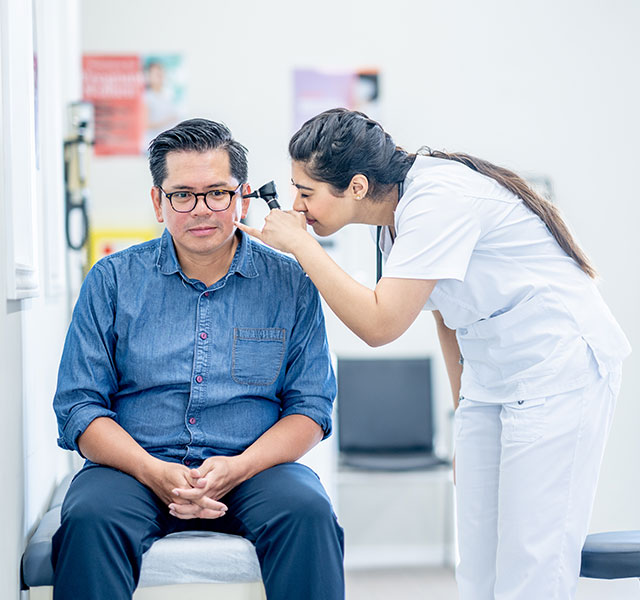Even the simplest of activities can be challenging if you’ve lost some hearing. Lively dinner conversations, watching your favorite TV programs and catching up with an old friend on the phone can all prove troublesome, even if the hearing loss is mild. Diminished hearing may have emotional consequences too, leaving you withdrawn and depressed and can even lead to social isolation.
The most common cause of hearing loss is damage to structures in the inner ear that are vital to hearing. Most hearing loss is related to the natural aging process. Other causes include:
- Exposure to harmfully loud noise — either once or regularly
- A family history of hearing loss
- Injury to the inner ear
- Measles, mumps or other infections
- Ototoxic medications, such as certain anticancer drugs and antibiotics
Temporary Vs. Permanent Hearing Loss
“When hearing loss is caused by age, it generally occurs so gradually many patients are unaware of a problem until a friend or loved one mentions it,” explains Chelsea Conrad, Au.D. “Higher-pitched sounds typically are the first to go, and this condition affects both ears. This type of loss, known as sensorineural, is permanent, but hearing aids can help.”
If something prevents sound from reaching the inner ear, conductive hearing loss results. Earwax buildup, fluid in the middle ear, abnormal bone growth, a punctured eardrum and ear infections are the most common causes of this type of hearing loss. Fortunately, this type of hearing loss often resolves after treatment.
Recognizing A Hearing Problem
If you suspect you might have a hearing problem, Dr. Conrad suggests that you ask yourself these questions:

- Are conversations hard to follow?
- Is it difficult to hear over the telephone?
- Do family members complain that you’ve turned the TV up too loud?
- Does background noise interfere with your hearing?
- Do you ask people to repeat themselves often?
- Are women and children especially hard to understand?
- Does it seem like people are always mumbling?
If you answered “yes” to any of these questions, talk with your doctor and schedule a hearing test with an audiologist, who is a doctoral-level specialist highly qualified to assess all types and severities of hearing loss and recommend the best treatment option to meet your needs and lifestyle.
“As audiologists, it’s really gratifying to be able to help restore our patients’ ability to communicate effectively and improve their overall well-being and quality of life,” says Dr. Conrad.
Reviewed by Dr. Chelsea Conrad, an audiologist who sees patients at Henry Ford Medical Center – Pierson in Grosse Pointe Farms and Henry Ford Hospital in Detroit.



